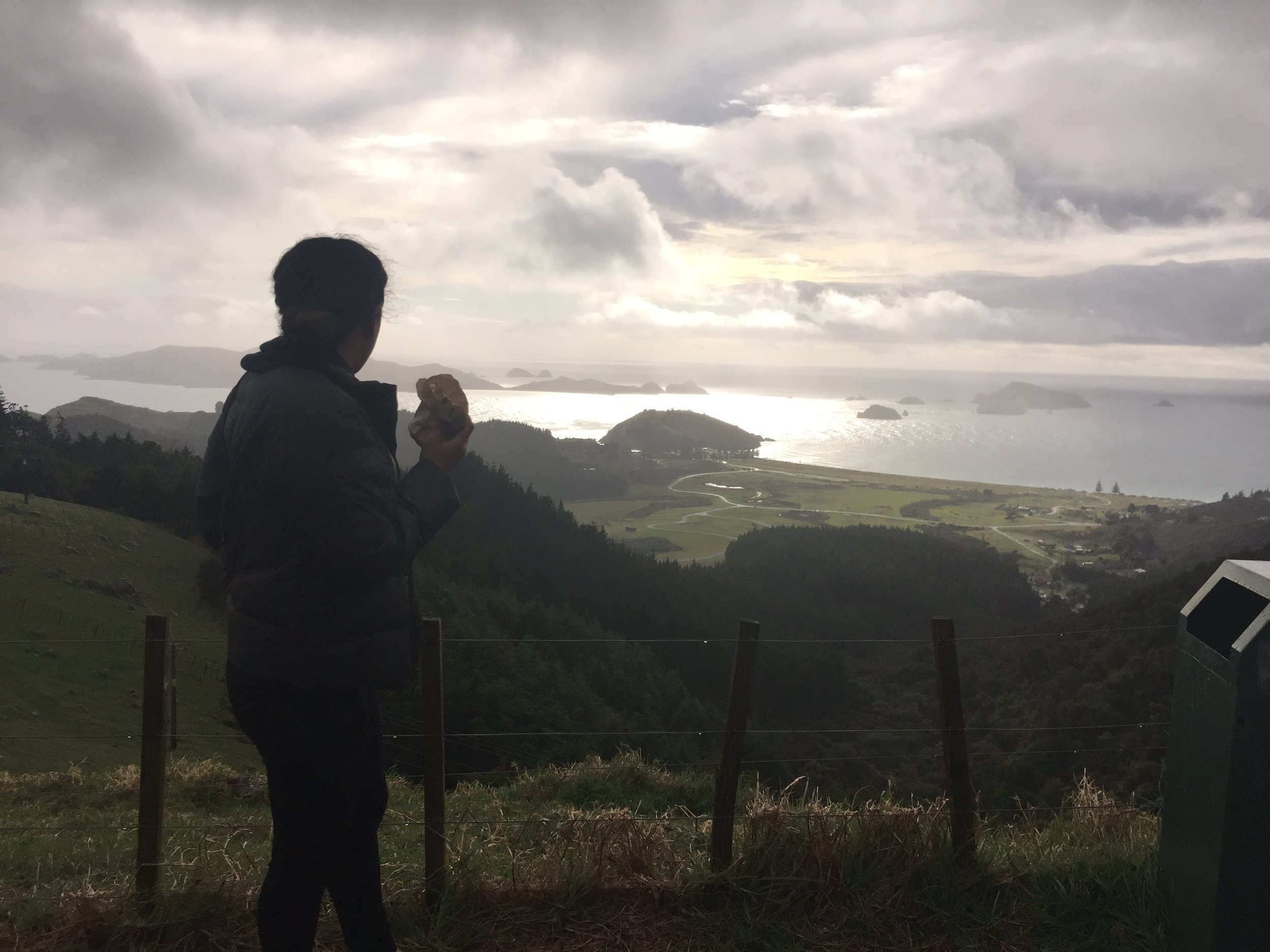The call of home for new graduate
Newly graduated landscape architect Jackie Paul is urban Maori, born and bred in South Auckland, but she calls the Far North home. “It’s where my father’s from,” Paul explains. “It fills my wairua cup, it’s a spiritual connection. When you grow up in a city everything is so busy. For me when I go back there it just brings me down to earth.”
Now that she’s finished Unitec the 24-year-old has just reached out to her local trust up North. Her next 10-year plan is to return to the Takou Bay area (where her father is from and grandparents are buried) to support her whanau plan their papakainga (housing development on ancestral land) and marae development.
Jackie Paul looks out towards Matauri Bay in the Far North.
“If you look at traditional papakainga settlements or rural areas nothing is subdivided,” Paul says. “It’s spatially arranged with a connection to the land, connection to water, and wider landscape. But as we work towards intensification in our cities how do we find that balance within the urban fabric? How can Maori values and worldviews shape the identity of the places we live in?
They are big questions which Paul is aiming to help answer with her work carrying out national research for the Te Ara Poutama Faculty at AUT in partnership with the Building Research Association of New Zealand. She’s about to join the team at Te Matapihi he tirohanga mo te Iwi Trust, an independent voice for housing Maori.
Jackie wore her grandfather's korowai, "Te Manawhakaora" at her recent graduation.
Recently she completed her final year of Bachelor of Landscape Architecture. Her dissertation explores urban papakainga and how New Zealand can decolonize and change the face of our cities. “How do we bridge that gap between Maori and western approaches? Out of that research came a lot of political issues (for me) around the housing crisis, homelessness, overcrowding and all of these social issues that we’re currently facing. Which influenced why I started to become more politically engaged, joining local youth councils, speaking at international conferences and joining the Auckland Youth Advisory Panel where I would be able to take my background of landscape architecture and create a shift in these spaces.”
Here Paul is off to collect seafood with her family at Takou Bay in the Far North.
Paul doesn’t come from a politically active family. “My parents are very grounded and down to earth Maori. I come from a big family where the majority are living in low-socioeconomic areas. Because of these issues and experiences, I understand that Maori are suffering. So I thought ‘how do we start building better communities through a different approach?’, that’s where I started from. Then it was ‘young people aren’t involved in these conversations. How can we make it more inclusive in terms of the way of the processes for urban planning and landscape architecture?’ Systemic processes don't always work, so we need to stop designing for communities and start designing with communities."
Jackie Paul at Te Ngaere Marae near Matauri Bay in Northland.
As a young Maori landscape architect does she feel a special responsibility?
“Definitely, and I think this generation, we’re more understanding, more aware of trying to grasp our own history, our identity and culture and sense of belonging to this place. It is not just a sense of responsibility but it’s also a passion and a motivating to do better for our people.”
At Takou stream in Northland.




